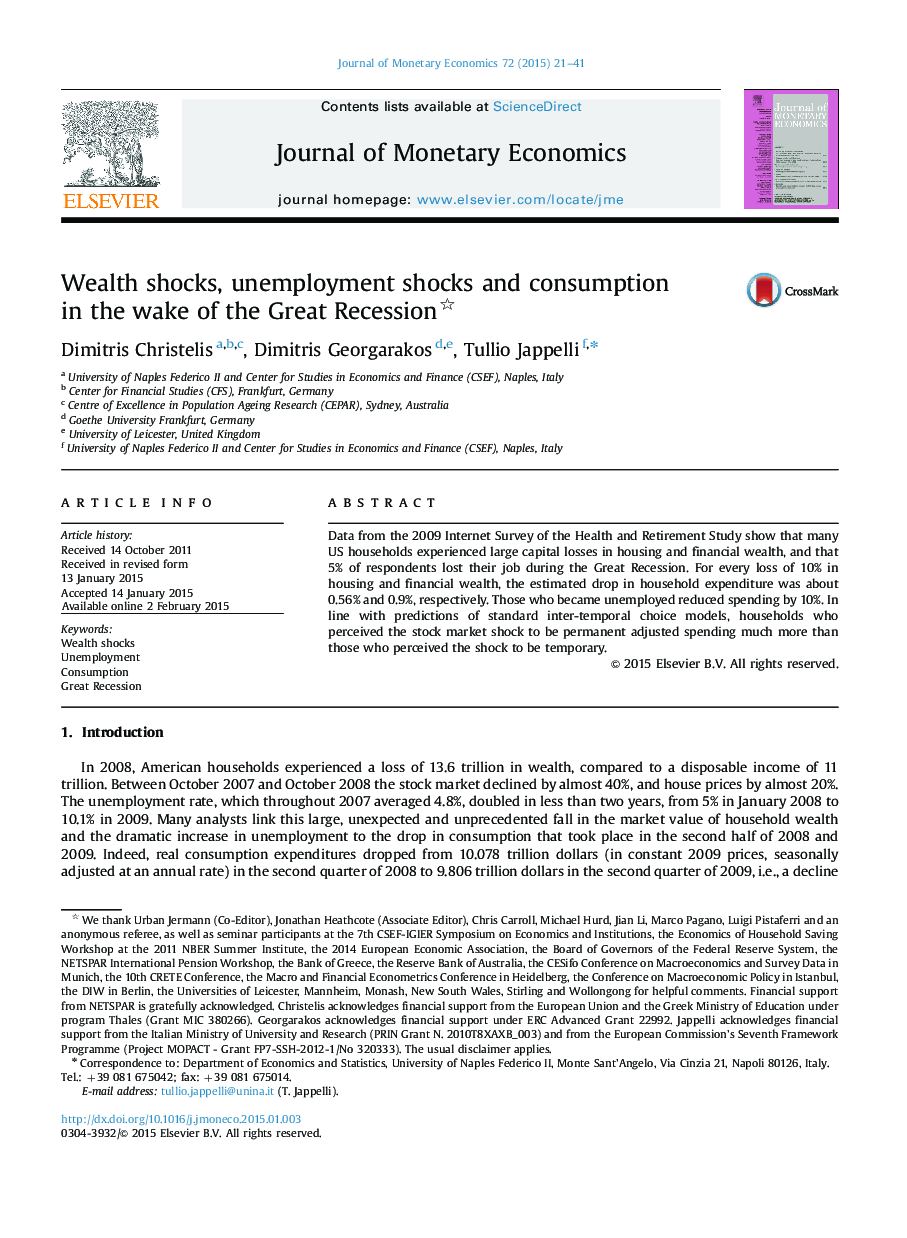| Article ID | Journal | Published Year | Pages | File Type |
|---|---|---|---|---|
| 966765 | Journal of Monetary Economics | 2015 | 21 Pages |
•During the Great Recession households experienced large capital losses in wealth.•A loss of 10% in housing wealth induces an estimated 0.56% drop in expenditure.•A loss of 10% in financial wealth induces an estimated 0.9% drop in expenditure.•Those who become unemployed reduce spending by about 10%.•Consumption primarily responds to financial wealth shocks perceived to be permanent.
Data from the 2009 Internet Survey of the Health and Retirement Study show that many US households experienced large capital losses in housing and financial wealth, and that 5% of respondents lost their job during the Great Recession. For every loss of 10% in housing and financial wealth, the estimated drop in household expenditure was about 0.56% and 0.9%, respectively. Those who became unemployed reduced spending by 10%. In line with predictions of standard inter-temporal choice models, households who perceived the stock market shock to be permanent adjusted spending much more than those who perceived the shock to be temporary.
